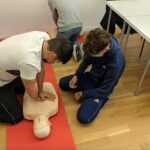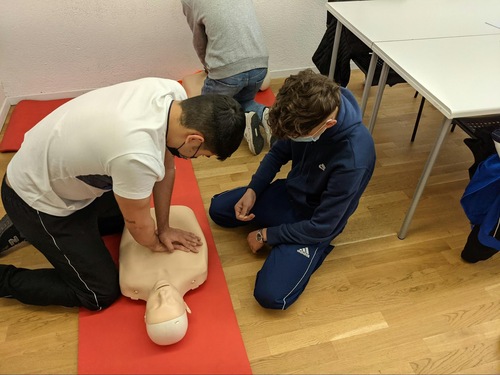Cardiopulmonary Resuscitation (CPR) is a life-saving technique that can mean the difference between life and death in emergencies. By maintaining blood flow and providing oxygen to the brain and other vital organs, CPR can provide a crucial lifeline until professional help arrives. With sudden cardiac arrest being a leading cause of death worldwide, the value of having more people certified in CPR cannot be overstated. Everyone, regardless of their profession or background, has the potential to save a life. Below, we will explore why CPR certification is a critical skill for all.
The Importance of CPR Certification in Emergency Situations
When emergencies strike, every second counts. Those who are CPR-certified can swiftly step into action, providing immediate care that could stabilize a victim’s condition. With the majority of cardiac arrests occurring outside of hospitals, the presence of someone trained in CPR at the scene could significantly improve the chances of survival.
CPR certification also means being trained to recognize the signs of cardiac arrest and other life-threatening conditions. It’s not just about technique; it’s also about assessment and decision-making skills that could prevent a situation from worsening. This critical knowledge is often disseminated in CPR Classes and Certification in Charlotte, NC.
Having certified individuals in homes, workplaces, and communities ensures that someone is always ready to respond in an emergency. It’s analogous to having a living, breathing safety net amongst us, a network of potential heroes prepared to react immediately.
Moreover, CPR certification often includes training on how to use an Automated External Defibrillator (AED), which can significantly affect the outcomes of resuscitation efforts. The knowledge of how to competently deploy this device can turn catastrophic events into stories of survival.
Enhancing Personal and Community Safety Through CPR Knowledge
CPR knowledge isn’t just for the individual; it’s a communal asset. Trained individuals indirectly contribute to the overall safety of their neighborhoods and workplaces. A community with more CPR-certified residents can be considered safer, with collective resilience in medical emergencies.
Personal empowerment is a significant benefit of obtaining CPR certification. Knowing that you possess the skills to potentially save a loved one, friend, or even a stranger in distress can instill a sense of readiness and confidence. This can encourage a proactive approach to health and safety in personal and professional life.
Educational programs highlight the importance of health awareness and encourage people to adopt healthier lifestyles, further preventing medical emergencies. Thus, CPR certification courses often have ripple effects beyond immediate emergency response knowledge.
Furthermore, organizations that encourage CPR training for their employees can create a work environment that prioritizes safety and preparedness. Such practices help foster a culture of care and responsibility, which can extend into each employee’s home life.
Overcoming Common Misconceptions About CPR Certification
Many people avoid CPR certification due to misconceptions, such as believing it is excessively time-consuming or too complex to learn. The truth is that many CPR courses are designed to be comprehensive yet accessible, breaking down the techniques into manageable steps that most people can grasp.
Another common myth is the fear of legal repercussions when administering CPR. However, Good Samaritan laws are in place in many jurisdictions to protect individuals who provide help in good faith. This legal shield ensures that rescuers can act without fear of unintended consequences.
There’s also a belief that CPR is only necessary for healthcare professionals, but it’s equally important for the layperson. Cardiac arrests and choking incidents can happen to anyone, anywhere, and the more people who are trained, the better the chances of successful intervention.
Lastly, the idea that CPR is rarely needed is dispelled by the statistics of how frequently emergencies occur. Without widespread CPR knowledge, many of these situations result in preventable deaths. By combating these misconceptions, the path is cleared for more people to embrace CPR training as a routine facet of responsible living.
Overall, CPR certification is a vital skill that can save lives in emergencies, benefiting individuals and communities alike. By overcoming misconceptions and encouraging widespread training, we can ensure that more people are equipped to act swiftly and effectively when every second counts.










